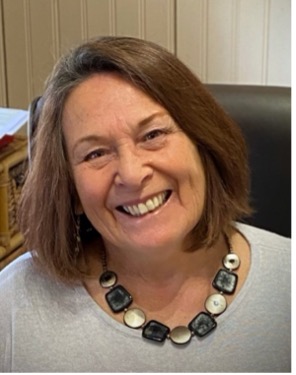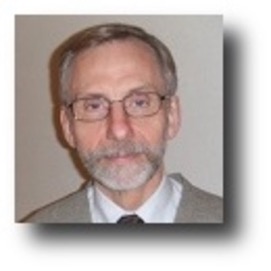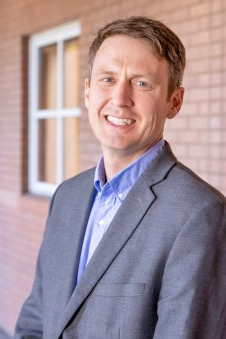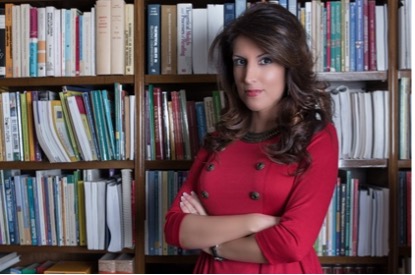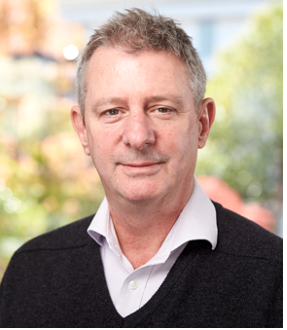Conférenciers pléniersKeynote speakers
Patrice Baldwin is Chair of the UK’s Council for Subject Associations and an internationally renowned expert in using Drama as a medium for teaching and learning. She has worked with teachers worldwide and published several books, the most recent being, Process Drama for Second Language Teaching and Learning, (co-written with Alicja Galazka). She was Chair of National Drama (UK) from 2004- 2015 and President of the International Drama Theatre and Education Association (IDEA) from 2010-13. She created and directed, Drama for Learning and Creativity (D4LC), which became a nationally recognised school improvement initiative. She was a primary headteacher, Arts Education and School Improvement Adviser, school inspector and a national curriculum editorial expert for Primary Drama. She has also worked as a BBC Education scriptwriter and series consultant for Drama and during the pandemic, was Oak National Academy’s subject leader for Primary Drama.
Jean-Paul Narcy-Combes est Professeur Émérite en didactique des langues à l’université Paris 3 Sorbonne Nouvelle où il a enseigné de 2004 à 2014. Il a été directeur du DILTEC EA2288 de 2010 à 2014. Il a été le fondateur de l’ARDAA (Association pour la Recherche en Didactique de l’Anglais) en 2009. Il a publié de nombreux ouvrages sur la recherche en didactique des langues.
Luke Plonsky (PhD, Michigan State) is Professor of Applied Linguistics at Northern Arizona University, where he teaches courses in second language acquisition and research methods. His work in these and other areas has resulted in over 100 articles, book chapters, and books. Luke is Editor of Studies in Second Language Acquisition, Managing Editor of Foreign Language Annals, Co-Editor of De Gruyter Mouton's Series on Language Acquisition, and Co-Director of the IRIS Database (iris-database.org). In addition to prior appointments at Georgetown and University College London and a Fulbright Scholar award at Universidad de Murcia in 2021, Luke has lectured in China, Japan, The Netherlands, Poland, Spain, and Puerto Rico.
Dr. María Luisa Pérez Cañado is Full Professor at the Department of English Philology of the University of Jaén, Spain, where she is also Rector’s Delegate for European Universities and Language Policy. Her research interests are in Applied Linguistics, bilingual education, and new technologies in language teaching. Her work has appeared in over 120 scholarly journals and edited volumes published by Elsevier, Peter Lang, Cambridge University Press, Multilingual Matters, Wiley-Blackwell, Routledge, DeGruyter, or Springer, among others. She is also author or editor of 11 books on the interface of second language acquisition and second language teaching, and editor or member of the editorial board of 18 international journals. María Luisa has given more than 170 lectures and talks in Belgium, Poland, Germany, Portugal, Ireland, England, Mexico, Brazil, Peru, China, The United States, Japan, Australia, and all over Spain. She is currently coordinating the first intercollegiate MA degree on bilingual education and CLIL in Spain, as well as four European, national, and regional projects on attention to diversity in CLIL. She has also been granted the Ben Massey Award for the quality of her scholarly contributions regarding issues that make a difference in higher education and three awards for pedagogical innovation and best teaching practices (2010, 2020, and 2022). She has equally been a finalist in the Premios Educa Abanca a Mejor Docente de España and is included in the Top 2% of the world’s most cited scientists according to the Ranking of World Scientists drawn up by Stanford University (2021 and 2022).
Professor Richard Smith lectures at the University of Warwick (GB) and his research interests and projects/publications relate to the following areas: History of language learning and teaching (HoLLT) and History of applied linguistics (HoAL); Textbook research; Teaching English in Large Classes and otherwise 'difficult' circumstances; learner autonomy; and practitioner research/teacher development. In 2018, he co-edited The History of Language Learning and Teaching, 3 volumes (Vol. I: 16th-18th Century Europe Vol. II: 19th-20th Century Europe; Vol. III: Across Cultures). (edited with N. McLelland). Oxford: Legenda (Modern Humanities Research Association). Introduction: 'Establishing HoLLT: the History of Language Learning and Teaching, Vol. 1: 1–19. ------------------------------ Résumés
Process Drama for Second Language Teaching and Learning Patrice Baldwin
Drama for language teaching should be more than just Drama games! This presentation explains how second language teachers can introduce and set up ‘Process Drama’ with whole classes, as a ‘brain-friendly’ context-based approach to acquiring and using language, within stimulating and meaningful contexts. Whole-class Drama will be explained and recommended, as an effective medium for learning and using language, both within and across the school curriculum. Reference will be made to a research-based project that produced evidence of Drama’s positive impact on pupils’ engagement levels, and on aspects of their personal, social and emotional development, as well as improving their talk and writing. Drama can also support pupils to develop their ‘21stCentury Skills’. Ways in which Process Drama can specifically provide opportunities for pupils to think, inter-think, talk and write appropriately, for various purposes and audiences will be outlined, and direct reference will be made to a successful, ongoing ‘Drama for Talk and Writing’ initiative. Some basic Drama Strategies will be presented as ‘Thought and Talk Frames’ and the various ‘talk protocols’ and different configurations they employ, will be considered in terms of linguistic opportunities and demands. Explicit links between socio-dramatic play, Process Drama and language learning will also be made, and the potential impact of teachers sometimes shifting ‘roles’, will also be highlighted. —---------------------------------------------------------------------------
A transdisciplinary approach to our field of research Jean-Paul Narcy-Combes
In an article published in Recherches et Applications (Macaire et al, 2010), Dominique Macaire, Henri Portine and I posed epistemological questions about the phenomena that interest our shared field, and how to approach them. This reflection has deepened over the years, leading to the publication of a book (Narcy-Combes and Narcy-Combes, 2019). We had to take stock of the fields we need to address to advance our research. According to the Douglas Fir Group (2016), traditional positions no longer correspond to current circumstances, which have highlighted plurilingualism through globalization, technologization and mobility, and a transdisciplinary approach seems increasingly unstoppable. We follow Bronckart (2011), who has long proposed a science of language for a science of the human. Research results in the human sciences and cognition: ARDAA was founded in response to a need for institutional and professional recognition. Of course, the research carried out at ARDAA cannot be done without collaboration with other fields. We will look at how to reconcile institutional constraints and the demands of research, which will lead us to raise the question of the political role of researchers. A role which has been addressed, for instance, in a publication edited by Beacco (2013). (1) above all confirm the intuitions of researchers who, like Bruner, Dewey, Freinet, etc., put the emphasis on action (learning by doing), and digital technology is changing the game by facilitating this action, (2) sometimes contradict, as we shall see, the dominant positions in social and pedagogical practices. References Beacco, J.-C. (dir.) (2013). Éthique et politique en didactique des langues : autour de la notion de responsabilité. Paris : Didier. Bronckart, J.-P. (2004). Pour un développement collectif de l'interactionnisme socio-discursif. Calidoscópio, 2, (113-123). Douglas Fir Group (2016). A Transdisciplinary Framework for SLA in a Multilingual World, The Modern Language Journal, 100 (19–47). Macaire, D., Narcy-Combes, J. P., & Portine, H. (dir.) (2010). Interrogations épistémologiques en didactique des langues. Le Français Dans le Monde - Recherches et applications. Numéro 48/07, Paris : Clé international. Narcy-Combes et Narcy-Combes (2019). Cognition et personnalité dans l’apprentissage des langues. Relier théories et pratiques. Paris : Didier. —------------------------------------------------------------------------- Study quality as an intellectual and ethical imperative: A proposed framework for the language sciences Luke Plonsky What is quality in the context of the applied language sciences? I believe that addressing this question is both an intellectual and ethical imperative for the field. Toward that end, I propose a four-part framework for understanding and evaluating study quality; quality research is (a) methodologically rigorous, (b) transparent, (c) ethical, and (d) of value to society. The bulk of the talk is devoted to describing each of these four elements, first conceptually and then as observed in the field. I also articulate some of the many connections among the four elements within the framework. In addition, I suggest next steps for further addressing the notion of quality in terms of the framework itself as well as the ways it might be used to advance our field’s research, training, and legitimacy as an academic discipline that is still in some ways coming of age.
—---------------------------------------------------------
Looking back to move forward: A research-based wishlist for the future of bilingual education Maria Louisa Pérez Cañado After more than two decades of implementation and development, Content and Language Integrated Learning (CLIL) research has undergone substantial change and moved in exciting new directions. This talk will revisit the current CLIL research panorama in striving to provide an updated, empirically-driven perspective of what’s hot and what’s not on the current CLIL research agenda. It will cast a glance back at the origins of bilingual education in the European continent in order to track the progress that has been made, determine where we currently stand, and map out future pathways for progression in the CLIL arena. A historical overview of key issues affecting bilingual education will be offered and aspects such as the shifting role of languages in CLIL, methodological issues, the importance of contextualization, diversity and inclusion, teacher education, the connection to EMI, the pluriliteracies approach, the supranational perspective, or the establishment of quality assurance frameworks will all be canvassed. The broader take-aways which stem from this empirically-oriented overview will be extracted and the issues that should truly inform current debates on bilingual education will be made salient through a research-based wishlist that will hopefully allow the future of bilingual education to stay on track and advance unfettered into the next decade. —---------------------------------------------------------
Re-viewing histories of language teaching: a foundation for present practice
Richard Smith
At times of apparent rupture – or at least disruption – perhaps it becomes even more important than usual to acknowledge historical roots, trends, values and consequences. In this contribution, I first reflect on the relative lack of ‘historical sense’ in the global fields of applied linguistics and ELT (English language teaching for speakers of other languages) and consider both reasons and consequences. I compare this with the situation in some other fields, including the teaching of French as a second/foreign language. I also note that the situation may vary according to national context. Indeed, when specific educational contexts are taken into account, including histories of top-down and outside-in attempts to influence practice, it becomes quite clear that, rather than there being ‘a’ single global history of language teaching methodology, there are diverse, under-explored histories in different settings which deserve renewed attention. The present-day relevance of exploring more deeply – indeed, treating as fundamental – our particular histories of language teaching in specific national, international, colonial, neocolonial, local, institutional and biographical contexts will thus be argued for in this paper, which draws on 30 years of research into English teaching in Asian and European settings. |

